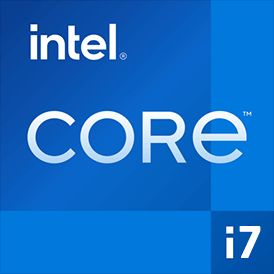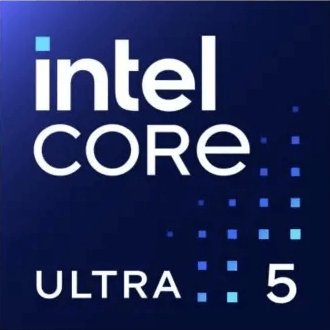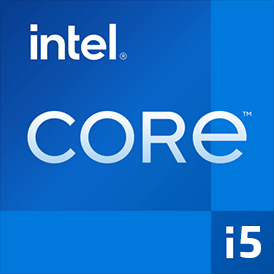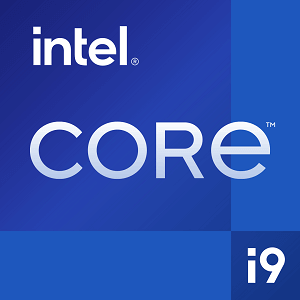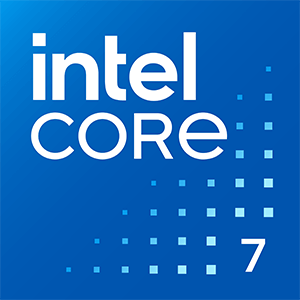Intel Core i7 1280P vs Intel Core i7 7500U
We compared two laptop CPUs: Intel Core i7 1280P with 14 cores 1.8GHz and Intel Core i7 7500U with 2 cores 2.7GHz . You will find out which processor performs better in benchmark tests, key specifications, power consumption and more.
Main Differences
Intel Core i7 1280P 's Advantages
Released 5 years and 6 months late
Better graphics card performance
Higher specification of memory (5200 vs 2133)
Larger memory bandwidth (76.8GB/s vs 34.1GB/s)
Newer PCIe version (4.0 vs 3.0)
Larger L3 cache size (24MB vs 4MB)
More modern manufacturing process (10nm vs 14nm)
Intel Core i7 7500U 's Advantages
Higher base frequency (2.7GHz vs 1.8GHz)
Lower TDP (15W vs 28W)
Score
Benchmark
Cinebench R23 Single Core
Intel Core i7 1280P
+83%
1743
Intel Core i7 7500U
951
Cinebench R23 Multi Core
Intel Core i7 1280P
+494%
11610
Intel Core i7 7500U
1952
Geekbench 6 Single Core
Intel Core i7 1280P
+292%
2168
Intel Core i7 7500U
553
Geekbench 6 Multi Core
Intel Core i7 1280P
+994%
10563
Intel Core i7 7500U
965
Blender
Intel Core i7 1280P
+300%
128
Intel Core i7 7500U
32
Geekbench 5 Single Core
Intel Core i7 1280P
+101%
1737
Intel Core i7 7500U
860
Geekbench 5 Multi Core
Intel Core i7 1280P
+472%
10341
Intel Core i7 7500U
1807
Passmark CPU Single Core
Intel Core i7 1280P
+71%
3302
Intel Core i7 7500U
1920
Passmark CPU Multi Core
Intel Core i7 1280P
+457%
20334
Intel Core i7 7500U
3650
General Parameters
Feb 2022
Release Date
Aug 2016
Intel
Manufacturer
Intel
Laptop
Type
Laptop
x86-64
Instruction Set
x86-64
Alder Lake-P
Core Architecture
Kaby Lake
i7-1280P
Processor Number
i7-7500U
BGA-1744
Socket
BGA-1356
Iris Xe Graphics (96EU)
Integrated Graphics
HD Graphics 620
Package
10 nm
Manufacturing Process
14 nm
20-28 W
Power Consumption
15 W
100 °C
Peak Operating Temperature
100 °C
CPU Performance
6
Performance Cores
2
-
Performance Core Threads
4
1.8 GHz
Performance Core Base Frequency
2.7 GHz
4.8 GHz
Performance Core Turbo Frequency
3.5 GHz
8
Efficiency Cores
-
14
Total Core Count
2
20
Total Thread Count
4
100 MHz
Bus Frequency
-
18x
Multiplier
-
80 K per core
L1 Cache
64 K per core
1280 K per core
L2 Cache
256 K per core
24 MB shared
L3 Cache
4 MB shared
No
Unlocked Multiplier
No
Memory Parameters
DDR5-4800, DDR4-3200, LPDDR5-5200, LPDDR4x-4267
Memory Types
DDR4-2133, LPDDR3-1866, DDR3L-1600
64 GB
Max Memory Size
32 GB
2
Max Memory Channels
2
76.8 GB/s
Max Memory Bandwidth
34.1 GB/s
No
ECC Memory Support
No
Graphics Card Parameters
true
Integrated Graphics
true
300 MHz
GPU Base Frequency
300 MHz
1450 MHz
GPU Max Dynamic Frequency
1050 MHz
768
Shader Units
192
48
Texture Units
24
24
Raster Operation Units
3
96
Execution Units
24
15 W
Power Consumption
15 W
-
Max Resolution
4096x2304 - 60 Hz
1.69 TFLOPS
Graphics Performance
0.4 TFLOPS
Miscellaneous
4.0
PCIe Version
3.0
20
PCIe Lanes
12
-
Extended Instruction Set
SSE4.1, SSE4.2, AVX-2
